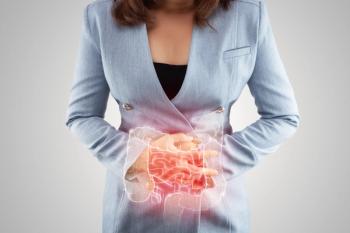
Addressing Constipation in Pregnant, Postpartum Women
The results of a new study show that constipation prevalence was 2- to 3-fold higher in pregnant women and women postpartum.
Constipation-related problems are a particularly common complaint among women during pregnancy. However, the results of a new study show that constipation prevalence was 2- to 3-fold higher in pregnant women and women postpartum.1
The findings, published in International Journal of Obstetrics & Gynaecology (BJOG), indicate that a focus on constipation prevention, treatment, and counseling is needed both during pregnancy and after childbirth. For the study, investigators from the University of Eastern Finland analyzed data from 5 cohorts of women: second trimester, third trimester, after childbirth, and a control group.1
Key findings revealed1:
- Forty percent of pregnant women and 52% of postpartum women reported constipation versus 21% of women in the control group.
- Forty-four percent of women experienced constipation in the second trimester and 36% in the third trimester.
- A few days after delivery, the prevalence of constipation was lower after vaginal delivery (47%) than cesarean section (57%, P<0.039).
- One month postpartum, constipation prevalence dipped: 9% after vaginal delivery and 15% after cesarean section.
According to the investigators, these percentages are surprisingly high. However, constipation-related problems appeared to subside quickly after delivery. Constipation is most frequently reported immediately after childbirth, which may be a result of time spent sedentary and insufficient intake of fluids after delivery. Damage to the pelvic muscles during vaginal delivery can also affect bowel functions, as can pain in the surgical wound after a cesarean section. During pregnancy, placental hormones cause bowel movements to slow down, and the growing uterus can make it difficult for stool to pass normally.2
“Constipation during pregnancy is more common in women who have suffered from it already before pregnancy, or during their possible earlier pregnancy,” lead author Moona Kuronen, Lic. Med, said.2
Health care providers should counsel pregnant patients on constipation prevention and symptom relief. Pharmacists can play a role in educating expecting mothers on solutions for managing constipation throughout their pregnancy by offering OTC recommendations and advice on diet modification. However, if lifestyle changes don’t improve the problem, the investigators stated that laxatives may be needed.2
Women in the study also reported other gastrointestinal problems, with 34% of pregnant women experiencing nausea and vomiting. Overall, 68% to 82% of women reported feeling of thirst, flatulence, and abdominal pain, which was slightly higher than the control group.1,2
“There is very little research into the incidence of constipation during pregnancy and immediately after childbirth,” Docent Hannu Kokki said.2 “Our findings show that constipation and other gastrointestinal problems are very common. This is why it is important to invest in their prevention and treatment, and in the related counseling, both during pregnancy and after childbirth.”
References
1. Kuronen M, Hantunen S, Alanne L, Kokki H, et al. Pregnancy, puerperium and perinatal constipation – an observational hybrid survey on pregnant and postpartum women and their age-matched non-pregnant controls. International Journal of Obstetrics and Gynaecology. October 8, 2020.
2. More than 40% of women suffer from constipation during pregnancy and right after childbirth. News Release. University of Eastern Finland; October 9, 2020. Accessed May 25, 2021.
Newsletter
Pharmacy practice is always changing. Stay ahead of the curve with the Drug Topics newsletter and get the latest drug information, industry trends, and patient care tips.























